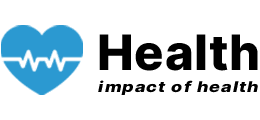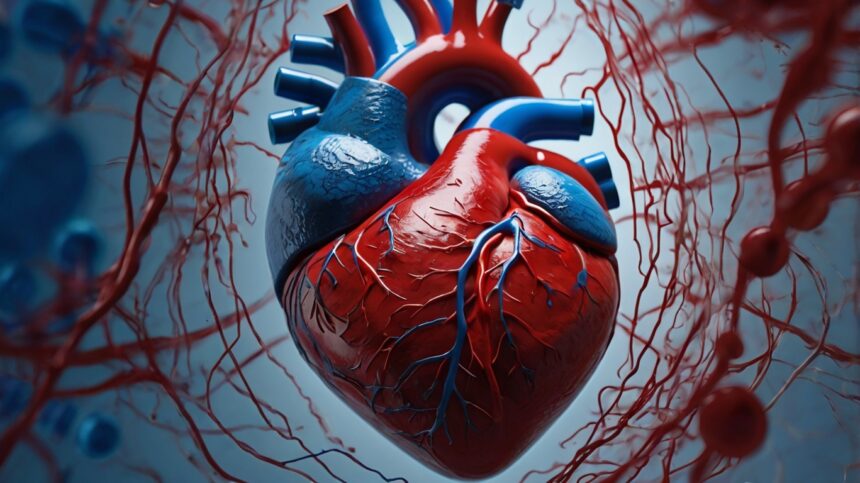High blood pressure, or hypertension, affects millions worldwide. It can impact your health, both physically and mentally. Knowing the signs of high blood pressure is key. It helps you seek medical help and manage it well.
High blood pressure can cause headaches, dizziness, chest pain, and shortness of breath. These symptoms can be mild or severe. Some people might not notice any changes. It’s important to check your blood pressure often.
High blood pressure can lead to serious health issues like heart disease and stroke. Recognizing its signs is the first step to managing your heart health. With your doctor’s help, you can create a plan to control your blood pressure and prevent its harmful effects.
Key Takeaways
- High blood pressure can trigger symptoms like headaches, dizziness, and chest pain.
- It can raise the risk of serious health issues, including heart disease and stroke.
- Checking your blood pressure regularly and working with your doctor is key to managing it.
- Changing your lifestyle, like eating well and exercising, can help keep your blood pressure healthy.
- Knowing the signs of high blood pressure lets you take steps to keep your heart healthy.
Understanding High Blood Pressure
High blood pressure, also known as hypertension, affects millions worldwide. It shows how hard the heart works to pump blood. Keeping blood pressure in check is key for a healthy heart and lowering heart disease risks.
What is High Blood Pressure?
Blood pressure has two numbers: systolic and diastolic. Systolic is the pressure when the heart pumps blood. Diastolic is the pressure when it rests. High blood pressure is when the systolic is 130 mmHg or higher, or the diastolic is 80 mmHg or higher.
Systolic vs. Diastolic Blood Pressure
Both systolic and diastolic blood pressure are important for heart health. High systolic pressure means the heart works too hard. High diastolic pressure means arteries don’t relax right. Checking both gives a full picture of heart health risks.
| Blood Pressure Category | Systolic (mmHg) | Diastolic (mmHg) |
|---|---|---|
| Normal | Less than 120 | Less than 80 |
| Elevated | 120-129 | Less than 80 |
| High Blood Pressure (Hypertension) Stage 1 | 130-139 | 80-89 |
| High Blood Pressure (Hypertension) Stage 2 | 140 or higher | 90 or higher |
| Hypertensive Crisis | Higher than 180 | Higher than 120 |
Knowing the difference between systolic and diastolic blood pressure helps people keep an eye on their heart health. It helps them work with doctors to manage high blood pressure and lower risks.
Symptoms of High Blood Pressure
High blood pressure, also known as hypertension, is often called the “silent killer.” It can go unnoticed for years. But, there are signs that may show your blood pressure is too high. Knowing these signs is key for keeping your heart healthy and getting medical help when needed.
Headaches are a common sign of high blood pressure. They feel like a dull, throbbing pain in your head or neck. Feeling dizzy or lightheaded can also mean your blood pressure is too high. This happens when the pressure in your blood vessels affects blood flow to your brain.
- Nosebleeds, while not always from high blood pressure, can be a sign, especially if they happen often.
- Chest pain or discomfort, feeling like tightness or pressure in your chest, can mean your heart has issues linked to high blood pressure.
- Feeling short of breath, even when you’re sitting still or moving, can warn of high blood pressure. Your heart may be working too hard to pump blood.
Many people with high blood pressure don’t feel any symptoms. That’s why it’s key to get your blood pressure checked by a doctor regularly. Catching high blood pressure early can really help prevent serious problems like heart disease, stroke, and kidney damage.
| Symptom | Description |
|---|---|
| Headaches | Dull, throbbing pain in the head or the back of the neck |
| Dizziness | Feeling lightheaded or unsteady on your feet |
| Nosebleeds | Frequent or unexplained nosebleeds |
| Chest Pain | Tightness or pressure in the chest |
| Shortness of Breath | Difficulty breathing, especially during physical activity or at rest |
These symptoms might not always show up, and some people with high blood pressure won’t feel anything out of the ordinary. So, it’s very important to get your blood pressure checked often. This helps catch high blood pressure early and manage it.
Risks Associated with Hypertension
High blood pressure, or hypertension, is a serious condition that can lead to severe health problems if not managed. It might not show symptoms, but its effects can be huge. They can hit both the heart and overall health hard.
Cardiovascular Health Risks
High blood pressure is a big risk for heart disease. It can harm arteries, making them stiff and narrow. This raises the chance of heart attack, stroke, and other serious issues.
People with hypertension are more likely to get congestive heart failure. This is when the heart can’t pump blood well across the body.
Kidney Disease and Eye Damage
High blood pressure also harms the kidneys and eyes. It can damage the kidneys’ blood vessels, leading to chronic kidney disease or even kidney failure. The eyes can also suffer from damage, causing vision problems or even total vision loss.
Managing high blood pressure is key for good cardiovascular health. Working with doctors and changing your lifestyle can lower risks. This helps prevent serious problems and improves your health outlook.
“Uncontrolled high blood pressure is a silent killer, and it’s critical to take it seriously. Addressing hypertension can make a significant difference in preventing life-threatening complications.”Causes of High blood pressure
High blood pressure, also known as hypertension, is a common health issue. It can lead to serious health problems. Genetics and health conditions can play a part, but lifestyle often leads to high blood pressure.
Lifestyle Factors Contributing to Hypertension
Many lifestyle choices can cause or worsen high blood pressure. These include:
- Diet: Eating too much sodium, saturated fats, and processed foods can raise blood pressure. On the other hand, eating more fruits, vegetables, and whole grains can help keep blood pressure in check.
- Physical Activity: Not moving enough and sitting too much is linked to high blood pressure. Exercise can lower blood pressure and boost heart health.
- Stress: Stress can hurt blood pressure by making the body’s stress response worse. This leads to more hormones that make blood vessels narrower.
- Alcohol Consumption: Drinking too much alcohol can make blood pressure go up. It makes blood vessels smaller and the heart work harder.
- Smoking: Smoking and secondhand smoke can harm the blood vessels’ lining. This raises blood pressure.
By changing these lifestyle habits, people can help manage their blood pressure. This can lower the risk of getting hypertension.
Diagnosing and Monitoring Blood Pressure
Keeping a healthy blood pressure is key for good health. Regular checks help spot and manage high blood pressure. The process includes simple home tests and detailed clinical checks.
Home blood pressure monitors are easy to use. They let people track their pressure often and share the results with doctors. This info helps make treatment plans and spot changes that need more attention.
Doctors also check blood pressure during visits. They take several readings to make sure they’re accurate. Sometimes, they suggest wearing a device that tracks blood pressure all day and night. This gives a full view of blood pressure levels.
In some cases, more detailed tests are needed. This might include echocardiograms or kidney function tests. These tests help find the reasons behind high blood pressure and guide treatment.
It’s important to keep in touch with doctors about blood pressure. By working together, people can manage their health and lower risks from high blood pressure.
| Diagnostic Method | Description |
|---|---|
| Home Blood Pressure Monitoring | Allows individuals to track their readings regularly and communicate them to healthcare providers. |
| Clinic/Doctor’s Office Measurements | Multiple readings taken during routine check-ups to identify patterns and trends. |
| Ambulatory Blood Pressure Monitoring | Involves wearing a portable device that takes readings throughout the day and night. |
| Advanced Diagnostic Techniques | Includes echocardiograms and kidney function tests to identify underlying causes of hypertension. |
Managing High Blood Pressure
Controlling high blood pressure is key for heart health and lowering serious risks. It requires a mix of medicine and lifestyle changes.
Medication for Hypertension
Doctors often start with medication to manage high blood pressure. These drugs lower the blood pressure by relaxing artery walls. There are several types of medications used:
- Diuretics, which help the body get rid of extra fluid and sodium
- Angiotensin-converting enzyme (ACE) inhibitors, which make blood vessels relax
- Angiotensin II receptor blockers (ARBs), which stop a hormone from narrowing blood vessels
- Calcium channel blockers, which stop calcium from making heart and blood vessel muscles contract
Dietary Changes for Blood Pressure Control
Changing what we eat is also important for managing high blood pressure. The DASH diet focuses on fruits, veggies, whole grains, and low-fat dairy. It helps lower blood pressure. Other tips include:
- Less sodium, as too much can raise blood pressure
- More potassium-rich foods like bananas, leafy greens, and beans to balance sodium
- Less processed and high-fat foods, which are often salty and unhealthy
Using both medication and diet changes helps people with high blood pressure control their condition. This reduces the risk of health problems.
“The key to managing high blood pressure is a comprehensive approach that addresses both medical and lifestyle factors.”The Role of Exercise in Blood Pressure Management
Keeping a healthy blood pressure is key for good heart health. Regular exercise is a great way to manage hypertension, or high blood pressure.
There are many exercises that can lower blood pressure. Aerobic exercises like walking, jogging, swimming, or cycling are great. They boost heart health and ease the heart’s workload. Strength training with weights or resistance can also help by making muscles stronger and improving heart fitness.
Flexibility exercises like yoga or stretching are good too. They help manage blood pressure by making you relax and lowering stress. Stress is a big factor in high blood pressure.
| Exercise Type | Benefits for Blood Pressure |
|---|---|
| Aerobic | Improves heart health and reduces cardiovascular workload |
| Strength Training | Enhances muscle strength and overall cardiovascular fitness |
| Flexibility | Promotes relaxation and reduces stress levels |
Adding a mix of these exercises to your routine can really help with high blood pressure. It keeps your heart and overall health in top shape.
“Regular physical activity is one of the most important things you can do to control blood pressure.”blood pressure and Stress Management
High stress levels can lead to high blood pressure, or hypertension. It’s important to know how to handle stress to keep your heart healthy. This is key for managing blood pressure.
Stress affects your body in many ways, like making your blood pressure go up. It can also make you choose unhealthy foods, sit too much, and drink more alcohol. All these can make hypertension worse.
But, there are ways to deal with stress and its effects on blood pressure. Some good methods include:
- Relaxation practices: Doing yoga, meditation, or deep breathing can lower blood pressure. It helps calm you down.
- Physical activity: Exercise is good for your heart and helps you feel less stressed. It keeps your blood pressure in check.
- Lifestyle modifications: Changing your diet, sleep, and who you hang out with can help you manage stress and blood pressure better.
Adding these stress-lowering activities to your day can help control hypertension. It can also lower your risk of other health problems. Learning to handle stress well is key to a healthier heart.
“Effective stress management is not just about reducing the experience of stress, but also about building resilience and developing healthy coping mechanisms.”Blood Pressure and Aging
As we get older, the risk of high blood pressure, or hypertension, goes up a lot. About two-thirds of people over 60 have this condition. It’s a big health issue for older people.
Hypertension in Older Adults
Older adults have special challenges with blood pressure. Their blood vessels get stiffer, and their heart changes. This can lead to high blood pressure. Other health problems like kidney disease or diabetes can make it worse.
If high blood pressure isn’t treated, it can lead to big problems. These include heart disease, stroke, and kidney damage. It’s important for older people to check their blood pressure often and work with their doctors to manage it.
| Characteristic | Older Adults (60+ years) | Younger Adults (18-59 years) |
|---|---|---|
| Prevalence of Hypertension | 66% | 33% |
| Average Systolic Blood Pressure | 136 mmHg | 125 mmHg |
| Average Diastolic Blood Pressure | 72 mmHg | 77 mmHg |
The table shows that older people are more likely to have high blood pressure. It also shows the differences in blood pressure levels between older and younger people. This highlights the need for careful blood pressure management as we age.
Healthcare workers can better help older adults with high blood pressure by understanding their unique challenges. By keeping blood pressure in check, older people can live better and happier lives.
Preventive Measures for High Blood Pressure
Keeping blood pressure in check is key to good health. Eating a diet full of fruits, veggies, and whole grains can help. So can staying active with activities like walking, swimming, or biking.
Managing stress with meditation, yoga, or deep breathing is also important. These steps can help keep blood pressure under control.
It’s crucial to get regular check-ups to watch your blood pressure. Doctors can suggest changes in lifestyle or prescribe medicine if needed. By doing this, you can keep your blood pressure healthy and avoid serious health problems.
Living a healthy life is the main goal. This means eating right, exercising often, and managing stress well. By focusing on these areas, you can lower your risk of heart disease, stroke, and kidney issues linked to high blood pressure.
FAQ
What are the common symptoms of high blood pressure?
Many people with high blood pressure don’t feel any symptoms. But, some signs include headaches, dizziness, nosebleeds, and chest pain. It’s key to know these signs since high blood pressure is often called a “silent killer.”
What is the difference between systolic and diastolic blood pressure?
Systolic blood pressure is the pressure when the heart beats and pumps blood. Diastolic pressure is the pressure when the heart rests between beats. Both are important for checking heart health and spotting high blood pressure.
What are the potential health risks associated with uncontrolled hypertension?
High blood pressure that’s not controlled can lead to serious health issues. These include heart disease, stroke, kidney damage, and eye problems. It’s vital to manage it with lifestyle changes, medicine, and regular checks to avoid these risks.
What lifestyle factors can contribute to high blood pressure?
Things like eating too much salt, drinking too much alcohol, not moving enough, stress, and being overweight can raise blood pressure. Changing these habits can help manage and prevent high blood pressure.
How is high blood pressure diagnosed and monitored?
Doctors diagnose high blood pressure by taking readings at the office. They might also suggest using a home blood pressure monitor. Sometimes, tests like ambulatory blood pressure monitoring are used to get a full picture of blood pressure patterns.
What are the primary treatment options for managing high blood pressure?
Managing high blood pressure often means making lifestyle changes and taking medicine. Doctors might prescribe drugs like diuretics, ACE inhibitors, or beta-blockers to help control it and lower health risks.
How can exercise help in managing high blood pressure?
Exercise, like aerobic, strength, and flexibility workouts, is key in managing high blood pressure. It boosts heart fitness and can lower blood pressure, improving heart health.
How does stress affect blood pressure, and what stress management techniques can help?
Stress can make high blood pressure worse. Using relaxation techniques, mindfulness, and changing your lifestyle can help manage stress and keep blood pressure in check.
How does high blood pressure affect older adults, and what are the key considerations for this population?
High blood pressure is more common in older adults. They need special care because of age-related health issues and possible drug side effects.
What preventive measures can individuals take to maintain healthy blood pressure?
Living a healthy life, eating right, staying active, and managing stress can prevent high blood pressure. Regular health checks and monitoring blood pressure are also key to staying healthy.


